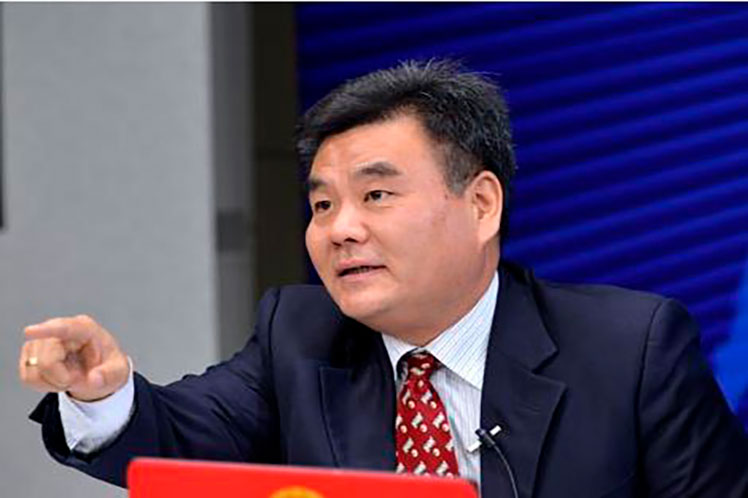Cui Hongjian, director of the National Institute of International Studies, told the Global Times newspaper that the negative climate has more to do with the hardening of the European Union’s investments and businesses, than with China’s policies.
The expert made such a reflection in reference to the survey issued this Wednesday by the EU Chamber of Commerce in China, which revealed the departure of 11 percent of respondents, showed eight percent planning to move to other destinations, and a general deterioration in business sentiment.
According to Cui, the European firms currently present in China face greater obstacles and limitations imposed by the EU. He based his claims on the Union’s recent security strategy and emphasis on reducing economic dependence on China while seeking to avoid risks and control investments in countries outside the bloc.
Cui considered that the “real cause” is the drop in confidence in China on the part of the European business community.
Chinese Premier Li Qiang is touring Germany and France this week. This is expected to provide certainty to the strategic links with those countries and the EU, although the tour is taking place in a scenario of divergence after the European Commission decided to stop using the services provided by the Chinese technology companies Huawei and ZTE under the argument that they present a risk to the security of Europe.
Faced with this scenario, Beijing denounces the harassment of its firms, demanding that Europeans comply with international trade laws, and stresses the commitment for pragmatic and beneficial cooperation between all parties.
The European Union’s strategy seeks to ensure that “the capital of EU corporations, their knowledge, their research and intellectual capital are not used abusively by certain countries or in military applications.”
jrr/llp/jf/ymr










